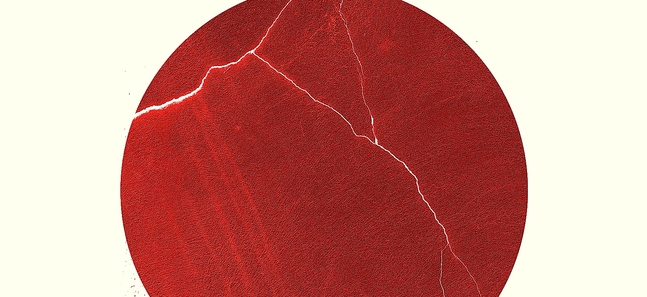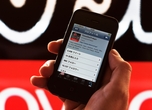Quakebook: The Twinterview
As the charity eBook prepares for print, 'Our Man' answers your questions

Posted: Thu May 12 2011
If you haven't yet heard of 2:46 - Aftershocks: Stories from the Japan Earthquake, we can only assume you've been living in a net-free shed with your head buried in something vile. The 100-page, crowd-sourced eBook, better known as Quakebook, hit number four on Amazon's non-fiction list in the week following its release. This June, it will be published in both Japanese and English in paperback form (you can pre-order it here).
Sensing that he was about to get very busy again, Time Out Tokyo took the opportunity to chat with the initial ideas man and editor, Our Man in Abiko, asking him to share a few things people might not already know about the project. True to form, he turned it into a crowd-sourced event, with Quakebook Twitter followers asking the questions.
@loveartblues: What was hardest part, or what took the longest, in getting Quakebook out? Was there a point when you almost gave up?
The worst moments are the weight of expectation. People expect the very best of Quakebook; I know I do, and that is sometimes hard to live up to. I'm not the world's most organised chap. I feel very guilty that I didn't get everyone's contributions in, and some fell between the virtual sofa cushions due to my incompetence and nothing else. I did the best I could, but sometimes that isn't good enough. I can only apologise. As for giving up – it was never an option. That would be allowing the earthquake to win, and I couldn't let that happen.
@808Towns: How did you curate and edit the stories?
I entered the fray armed only with email, Twitter and Neo Office, a freeware Microsoft Office clone. I used email to collect stories and fire them off to translators and copy editors around the world, Twitter to find those stories, translators and copy editors, and the word processing program (is that what the kids call it these days?) to cut and paste the finished stories.
@zerosonico: Did Yoko Ono really find out [about Quakebook] for herself and decide to help? Also, what was the exact amount of time from idea to publication?
For the first question, I have no idea. I know that one of our followers tweeted Yoko Ono to get her attention. Whether that did the trick or not I don't know, but one day I got an email from her PR team saying that she wanted to help, and she submitted a beautiful piece about her, John and Sean in Tokyo experiencing an earthquake. Exact time? I'm not into exactitudes. It took one week and a day or so to complete the manuscript and another week or two to get it onto Amazon, who amazingly waived all fees so all the money goes directly to the Japan Red Cross.
@ThatDanRyan: How many different time zones were the team members in? How many Quakebook team members actually have journalism training?
Too many time zones to keep up with. 10? 20? We had contributors from several countries, and the number of people working around the world on it as copy editors, translators, proof readers, PR advisors, cheerleaders, critics, typesetters, designers, and social media gurus keeps growing. A rough estimate is that there are 200 people who have worked directly on the project, only one of whom I had met before Quakebook began. Training? I have no idea. I never asked for anyone's resumé. I only asked, 'Can you help?' If the answer was 'Yes', that was all the qualification I required.
@tokyofreelance: In how many languages, and in which countries, has Quakebook received media coverage?
Let's see… Countries that have run stories about Quakebook, to my knowledge, include Brazil, France, Japan, Germany, Ireland, Holland, the UK and the USA. I've probably missed a few out there, like some of those new ones, Slovikistan and Bulgatonia. I love Bulgatonia: great people, wonderful history.
@dailyvemuri: Did you ever worry that spontaneity and purpose would be taken over by the PR machine?
Er, you'll have to speak to my spin doctor, Roberto De Vido. But seriously, I think the success of Quakebook is based on its honesty – a warts-and-all approach to telling the world what happened on March 11. To allow a PR machine to smooth all the rough edges would be counter to the spirit of Quakebook.
@eanjhair: How have you managed to safeguard your cover name, despite huge media interest?
Naturally, I have taken precautions, such as flipping my avatar silhouette from left to right and then viewing it in a mirror – anything to throw the newshounds off the scent. Actually, I've never taken any measures to hide my true identity. It would be pretty simple for anyone to find out my real name. But I prefer to be known as Our Man in Abiko for a number of reasons. Quakebook is a Twitter-based project and that's where Our Man is in his element. I just ask interviewers not to reveal my identity publicly out of respect for the collective nature of the project, my family's privacy, and the fact that if they did I would hunt them down like the dogs that they are and beat them to within an inch of their lives. So far, they have complied.
@LnBen: Any chance any of the photos will become available for purchase? I'd love to hang some in the office.
That's a jolly good idea. In fact, there is talk about an international art auction of the work in the book for charity, but it's just talk at the moment. But you know how good ideas can take on a life of their own…
Turning the tables, @OurManInAbiko asked Tweeters the following question...
What surprised you about Quakebook?
@bigopinion_pro:
Definitely surprised that you got a piece from Yoko Ono in essentially a week. All of the content is surprisingly intimate...
@ritorumagaijin:
Someone from my town contributed to it. I thought I couldn't be farther from Japan and the events if I tried. It's a small world.
@taotsu:
[My] huge surprise about Quakebook is the wide and international interest [it got] leading up to getting it published in other languages.
@goodandbadjapan:
Surprised that so many stories about the same event could be so completely compelling.
@Tomoshiga:
Contributing to Quakebook is the greatest, most selfless thing I've ever done. The word improbable doesn't exist in my vocal.
@onigiri:
I found no heroes or tragedies in a sensational press sense, only 'normal' people and how they lived this event. I loved that!
@kristineiida:
Surprised I had goosebumps while reading Quakebook, from beginning to end. Same for the second and third time. Very strong impact.
'2:46 - Aftershocks: Stories from the Japan Earthquake' is available as an eBook from Amazon. For more information, the official website is www.quakebook.org
Tweets
- About Us |
- Work for Time Out |
- Send us info |
- Advertising |
- Mobile edition |
- Terms & Conditions |
- Privacy policy |
- Contact Us
Copyright © 2014 Time Out Tokyo














Add your comment